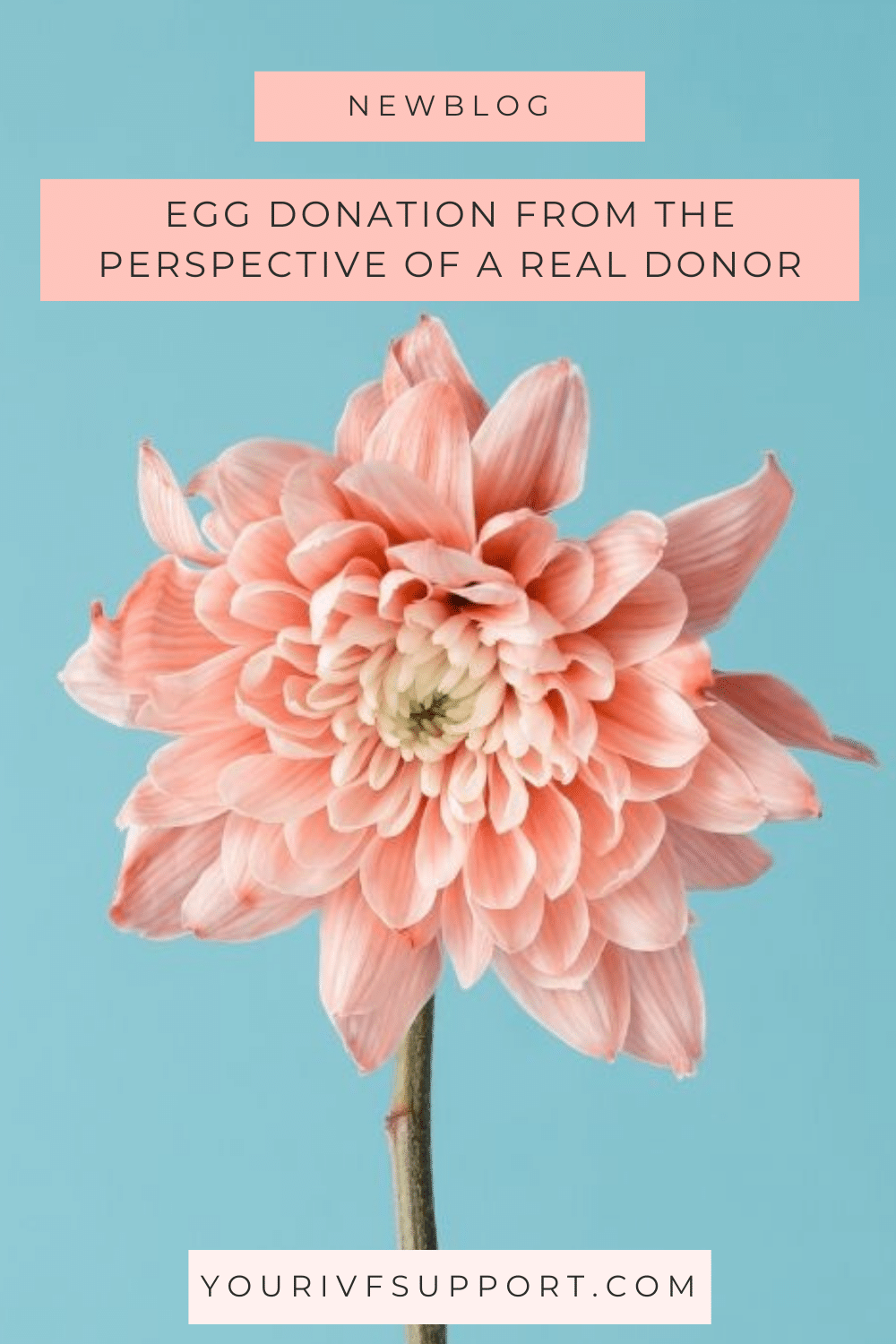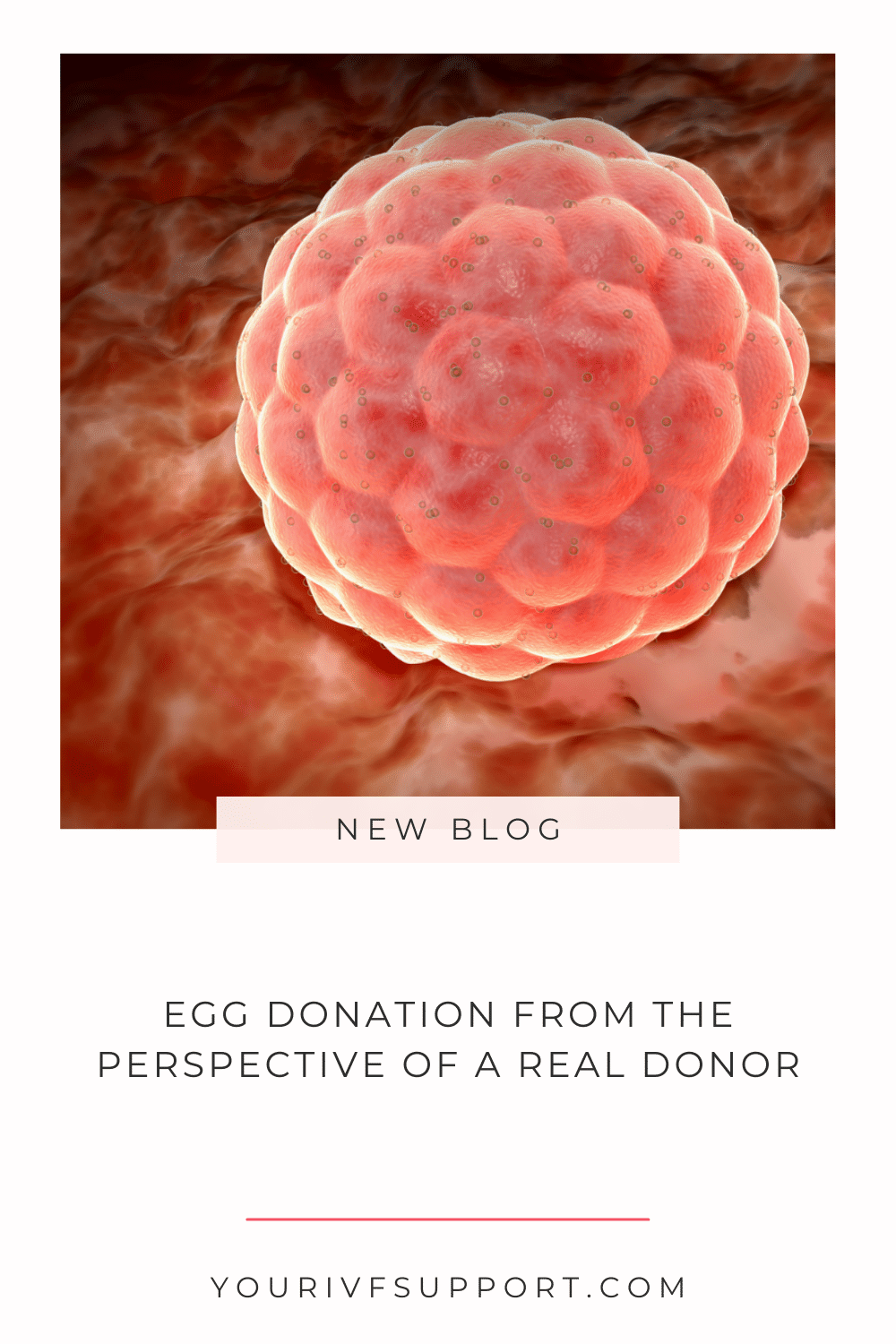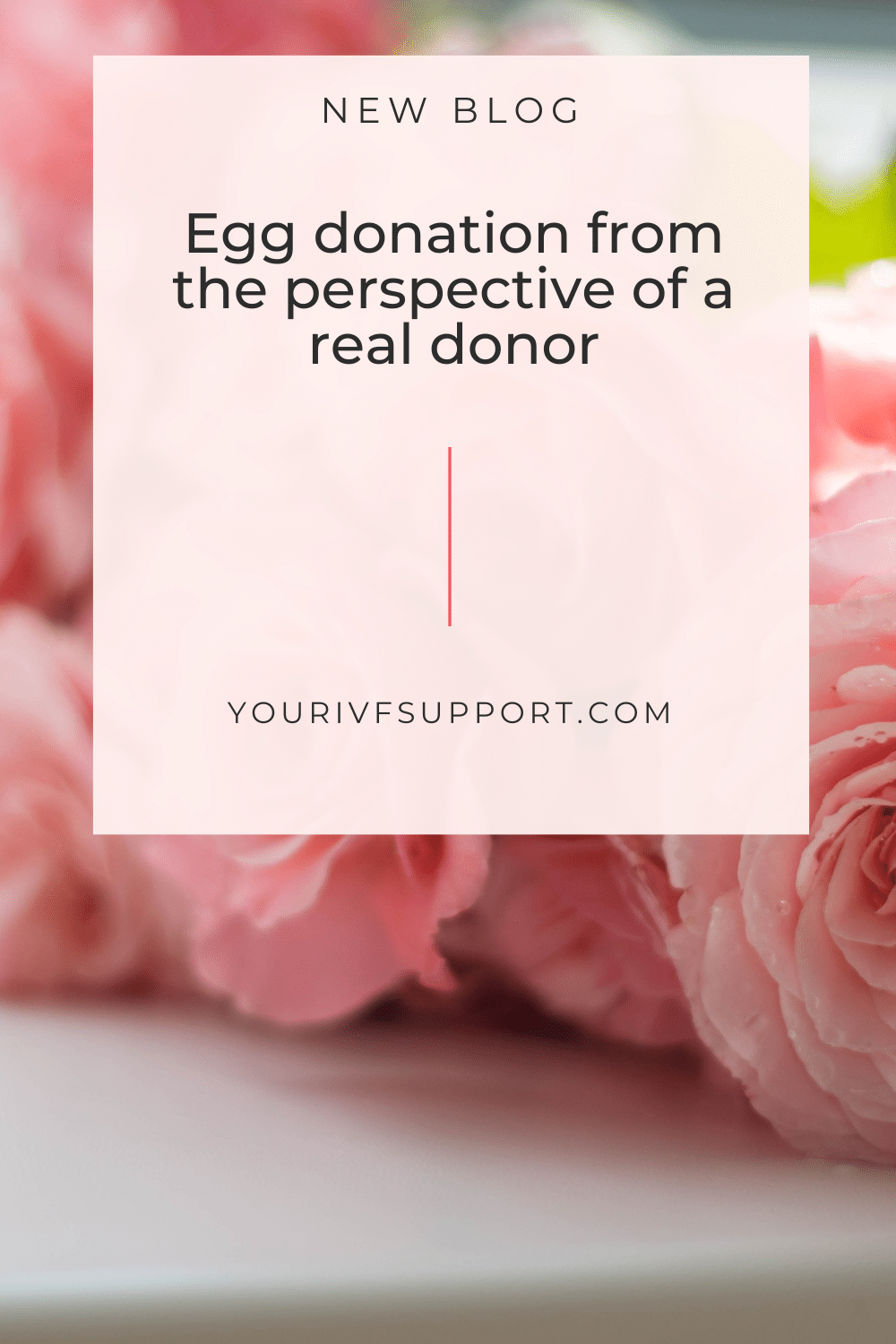Egg donation is still a difficult topic that is talked about far too little in our society, and when it is, it is about the process from the patient's point of view. Of course, it is important to know the process, but often patients also wonder how a donor goes through the process and why she is doing it. This article will take you through the entire donor process from a donor's perspective, from selection to actual donation. If you want to learn more about the steps an egg donor goes through, continue reading.
What is egg donation?
Egg donation is a process in which a woman donates her eggs to help another woman become pregnant. This is usually done as part of fertility treatment, where the donated eggs are fertilised and transferred to the recipient. The egg donor undergoes medical tests and hormone treatments to stimulate the production of multiple eggs. The recipient can then receive the donated eggs and begin the pregnancy process.
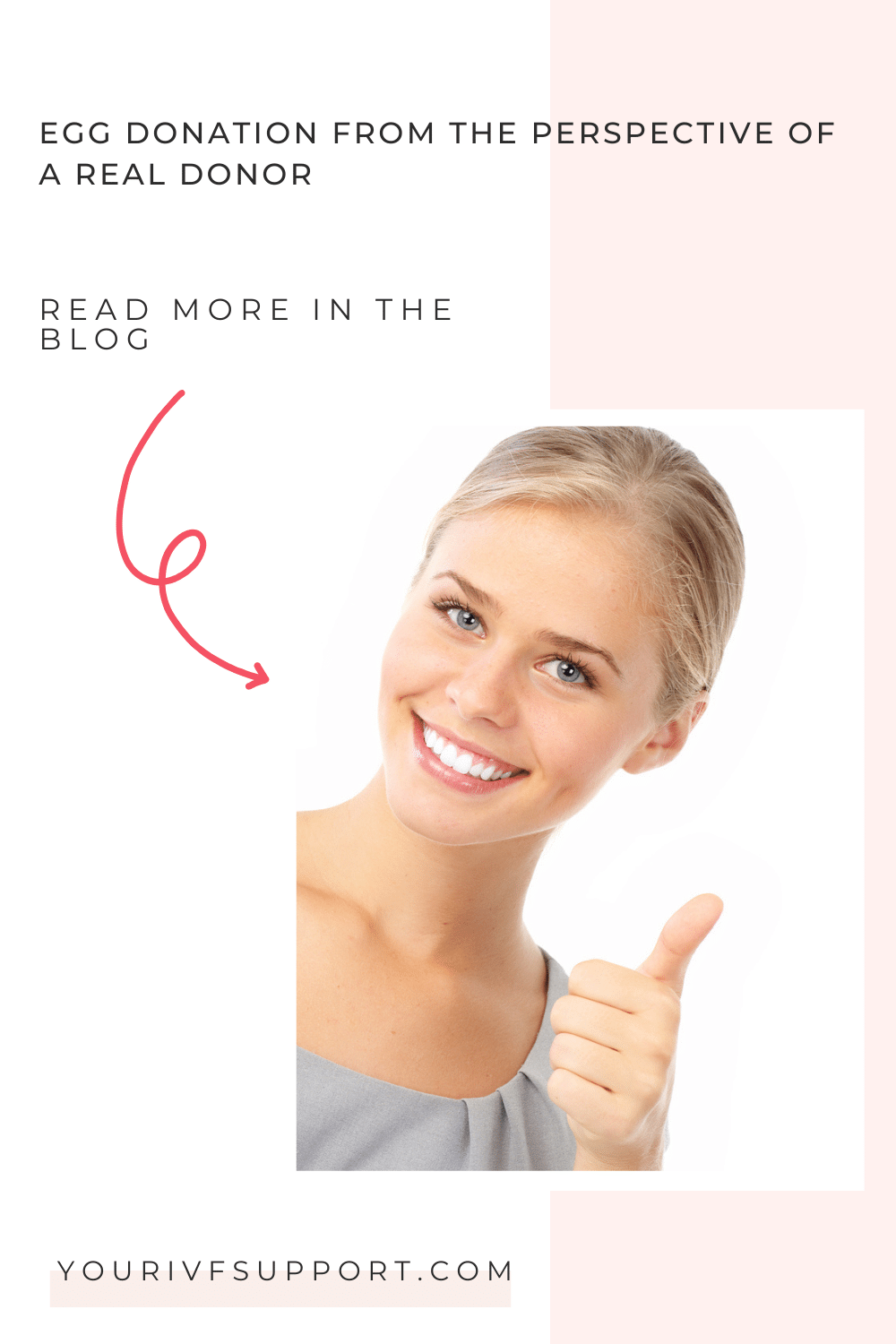
Here we must distinguish between two types of egg donation:
Anonymous egg donation
With anonymous egg donation, the identity of the donor remains secret. The recipient receives no information about the donor and the donor learns nothing about the recipient. Anonymous donation offers the advantage of data protection and can ensure a degree of privacy for all involved. This approach is regulated by law in some countries to ensure anonymity.
Open egg donation
In contrast to anonymous donation, open egg donation allows a certain degree of openness between donor and recipient. The recipient may receive information about the donor, such as general health data or personal interests. Some countries allow this approach to give recipients more information about the genetic origin of the eggs. Open donation can allow a deeper connection between the parties involved.
Legal situation in different countries
The legal regulations on egg donation vary considerably from country to country. In some countries egg donation is completely prohibited, while in others it is strictly regulated. Some countries only allow anonymous donation, while others allow open donation. It is important to note that the legal situation can change constantly, so it is advisable to check with experts or professionals in the respective region about the current regulations.
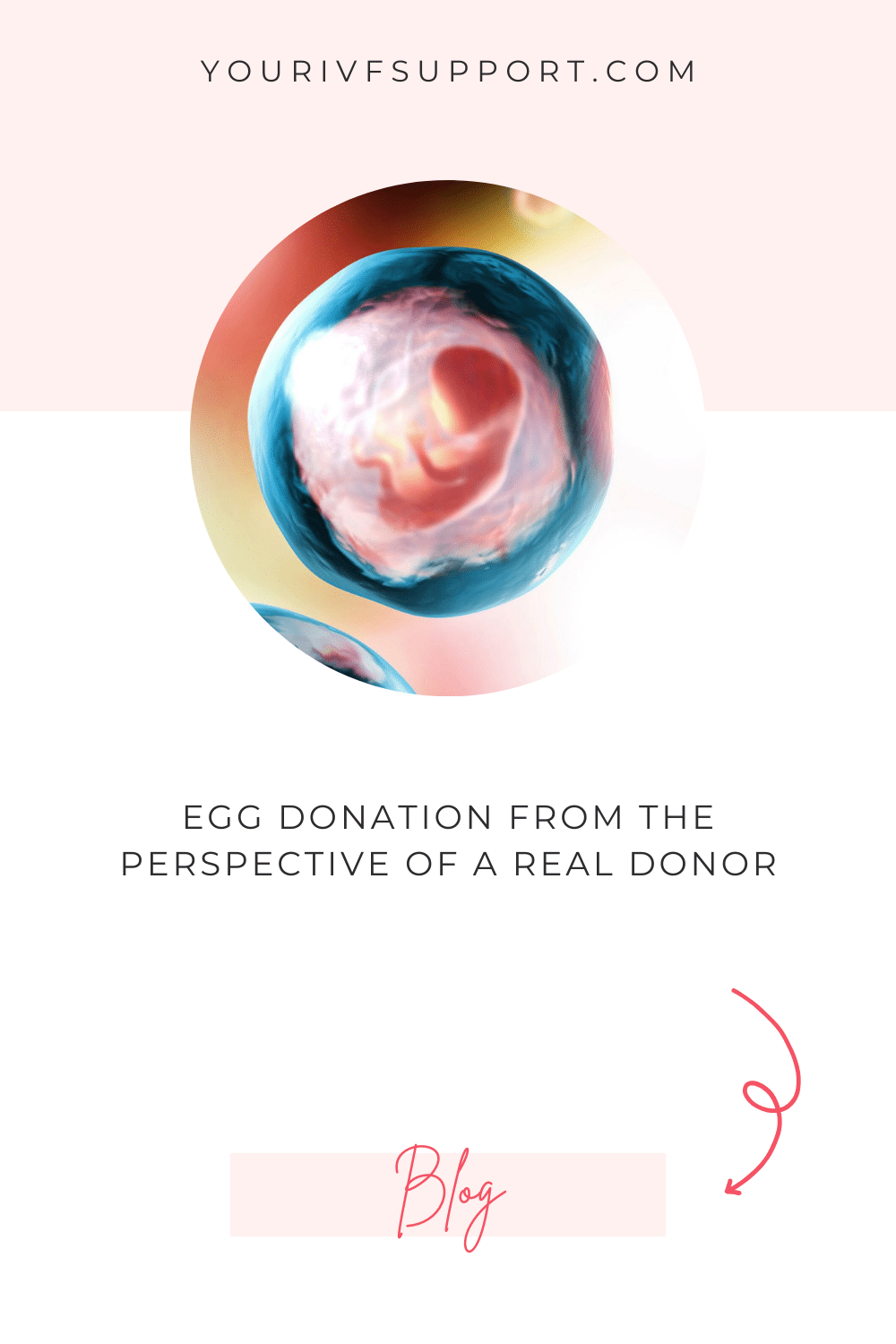
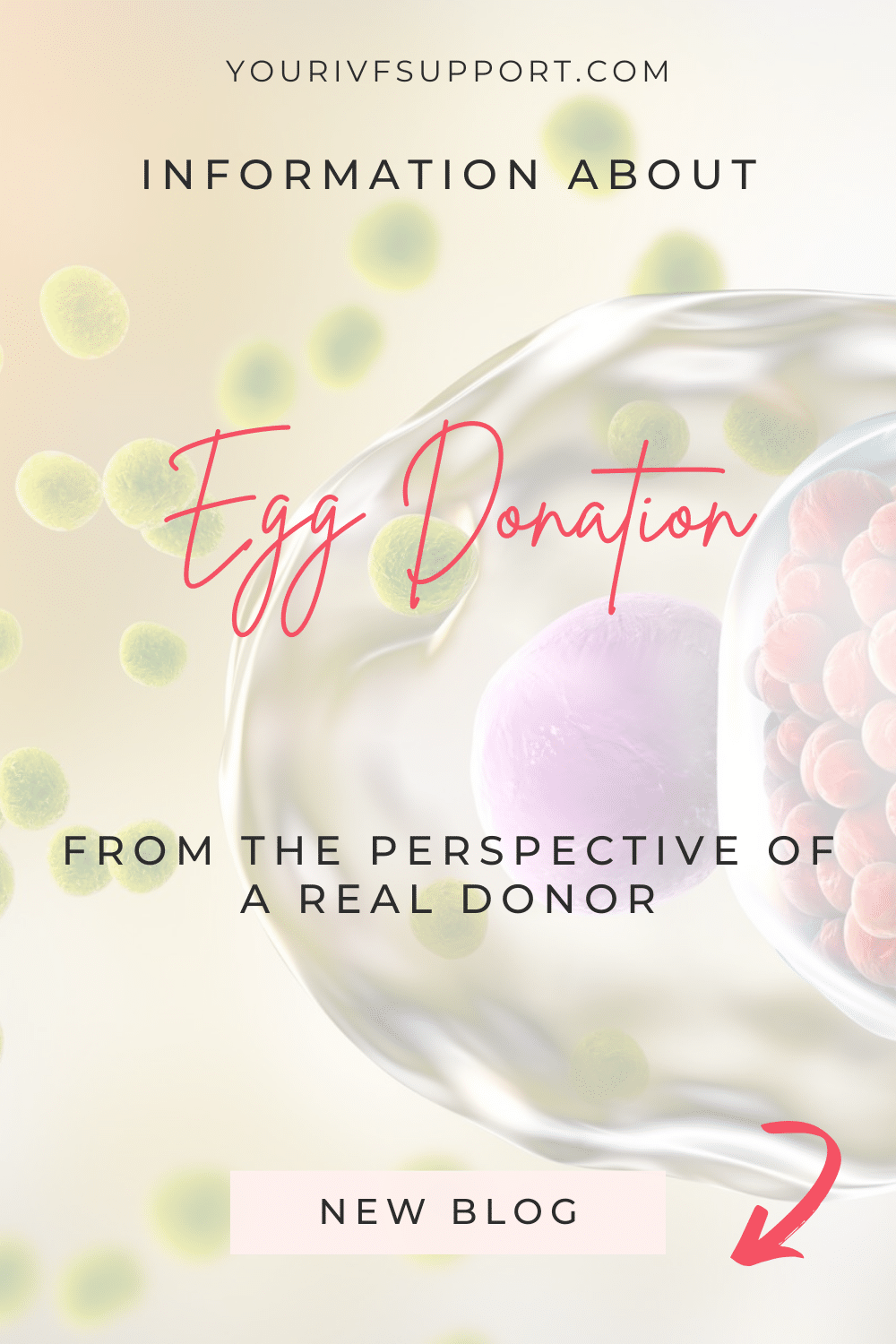
How donation works from the egg donor's point of view
Step 1: The decision to donate
The first step towards egg donation is the personal decision to help other women who have difficulty conceiving naturally. This altruistic decision requires careful consideration as it involves not only physical but also emotional aspects. The donor process often greatly restricts one's life for 1-2 months, as one often has to go to the clinic for examinations. This can have a significant impact on one's private and working life. It is often difficult for donors to talk about this decision with those around them, but they often have no other choice, as it is difficult to keep this process a secret at work and in the family.
Step 2: The application and selection
Once you have decided to become an egg donor, you will usually be asked by a clinic or agency to fill in a questionnaire and provide some medical and personal information. Based on this information, the selection is made, considering criteria such as age, health status and medical history. There are also one or two interviews, depending on the clinic, with a psychologist and medical specialist who make sure the answers are correct beforehand.
Photos are also taken to help the medical team choose a donor for a recipient. Since most clinics, in terms of appearance, always look for a "twin sister" of the recipient.
Step 3: Medical examinations
After being selected as a potential egg donor, an important stage begins: the medical examinations. This stage is crucial as it is to ensure that your health and suitability for egg donation are guaranteed. The medical examinations are thorough and multi-layered to get a comprehensive picture of your health.
- Blood tests: A look beneath the surface
One of the first steps in medical examinations are blood tests. These tests are used to get important information about your blood levels, hormone levels and possible infections. The results of the blood tests give the doctors an insight into your general health and help to rule out possible risk factors. This can ensure that egg donation is safe for both the donor and the recipient. An elaborate genetic background test is also done to rule out hereditary diseases.
- Ultrasound examinations: A closer look at the ovaries
Ultrasound examinations are another important part of medical examinations. Here, sound waves are used to create a detailed image of the ovaries. This allows doctors to check the number and maturation of the follicles. The information from the ultrasound scans is crucial in determining the best time to retrieve the eggs. During the donor process, there will often be further ultrasound scans to constantly monitor the growth of the eggs. Shortly before retrieval, these examinations will take place every two days or even daily.
- Thorough anamnesis: focus on your health history
During the medical examinations, a detailed medical history is also taken. This involves asking the donor about her medical history, existing health conditions and any genetic diseases. A thorough medical history allows the doctors to identify any risk factors and ensure that the egg donation is carried out in a medically responsible manner.
- Why are these examinations important?
The medical examinations not only serve to determine the suitability of the donor for egg donation, but also to ensure the safety of the entire process. Both the health of the donor and the health of the recipient are central. By thoroughly checking all medical aspects, it is ensured that the egg donation takes place under the best possible conditions.
- Trust in the experts
While this stage may seem time-consuming, it is important to trust the medical professionals. The examinations are carried out by experienced doctors who have the necessary knowledge and expertise to ensure that both you and the recipient can benefit from the egg donation. The careful conduct of the medical examinations helps to make the whole process successful and safe.
- Match with a recipient
As soon as all the examinations have been completed and the woman can become a donor. She is entered into a file with all her data and photos.
If a patient then needs a donor, this file is searched for a suitable candidate. If there is a suitable donor, she is asked whether she would like to donate and whether she is able to do so. Since it takes 1-2 months and the donor must always be close to the clinic during this time, it can happen that she is unable to donate. Then the search would continue. However, if she is able, she will be asked to come to the clinic for another examination and prepared for the donation.
"The egg donor undergoes medical tests and hormone treatments to stimulate the production of multiple eggs. The recipient can then receive the donated eggs and begin the pregnancy process."
Step 4: Medical preparation
Once a suitable donor has been found, the preparation for donation begins for her. This involves receiving a medical plan with hormone treatments aimed at stimulating the production and maturation of several eggs. The cycle is also adjusted to that of the recipient. This treatment usually takes about two to three weeks. Here, the donor has to inject herself with various hormonal medications two to three times a day. As with the hormonal preparation of the recipient, there may be side effects. This process is constantly monitored with ultrasound scans and visits to the clinic.
Step 5: Egg collection
Egg retrieval is the central step in the donor process. It is done in an outpatient procedure under local anaesthetic or light sedation. A thin catheter is inserted through the vagina into the ovaries to retrieve the mature eggs from the follicles. This procedure usually only takes about 20 to 30 minutes. This process can be uncomfortable despite the light sedation, depending on the case and the donor's body type, it may be easier or more difficult to retrieve the mature eggs.
Step 6: Recovery and aftercare
After the egg retrieval, the donor will need a short recovery period. Shortly after the procedure, the donor can go home, but should avoid physical exertion for a few days. Usually the clinic or agency will be available to help the donor afterwards, for any questions or examinations.
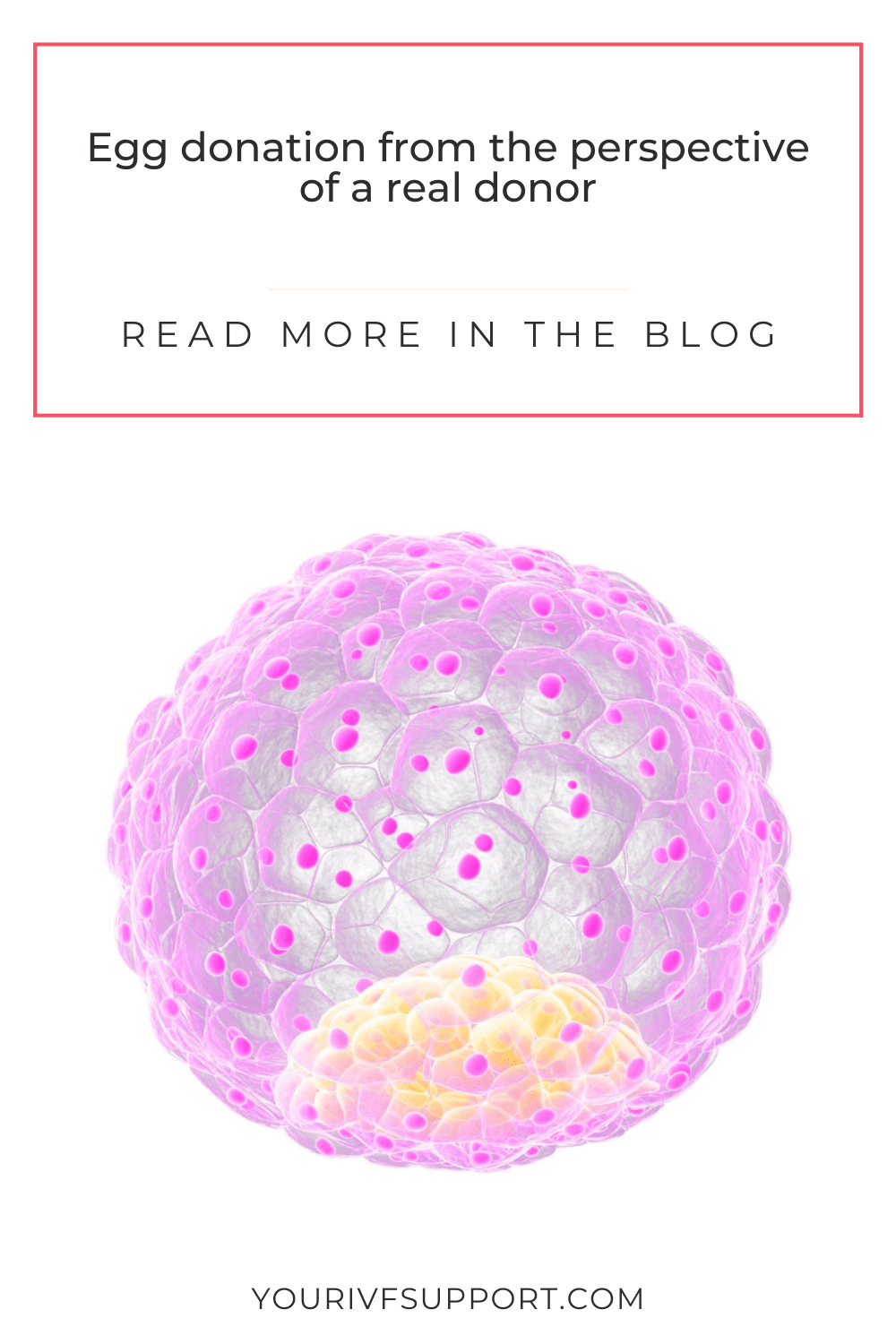
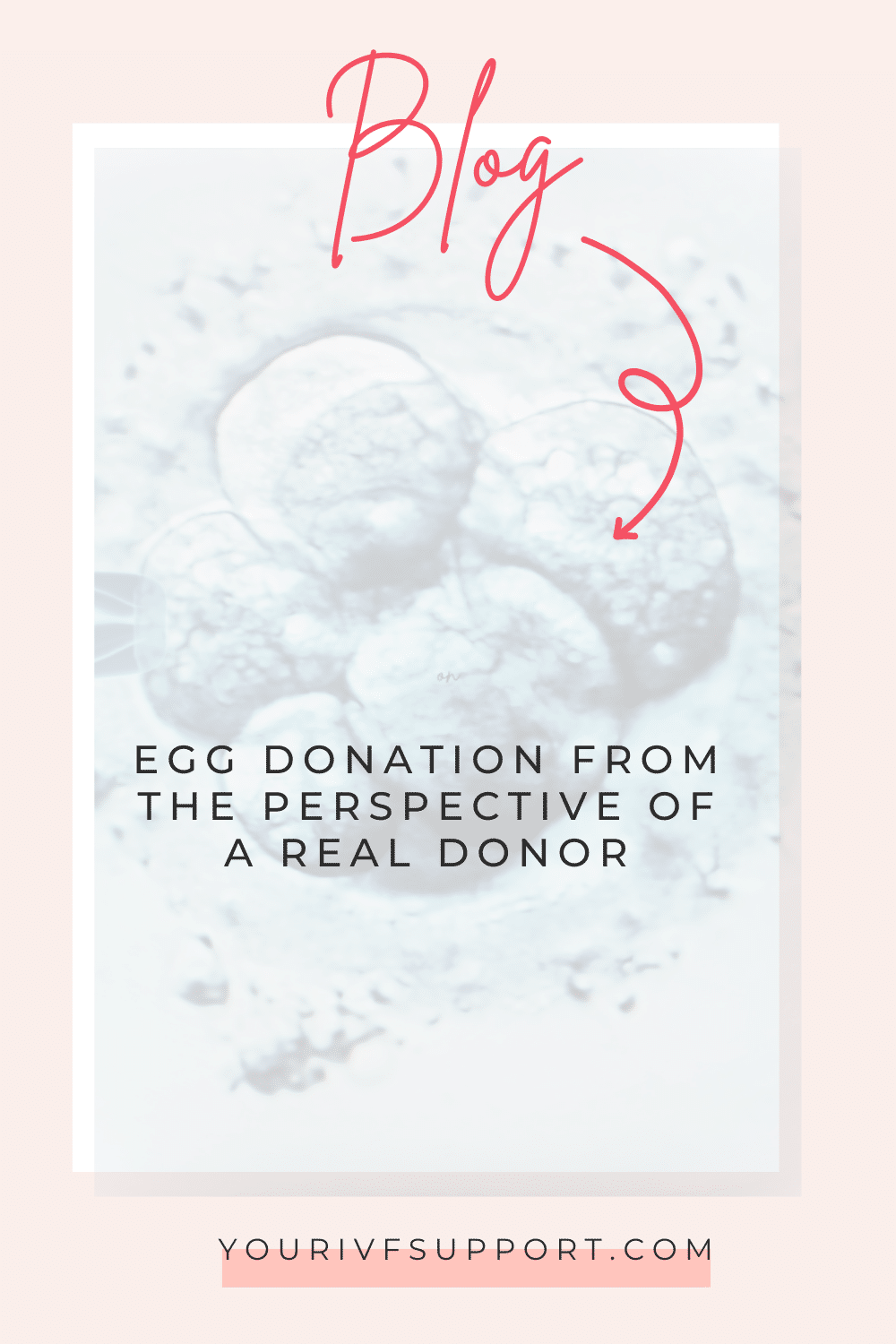
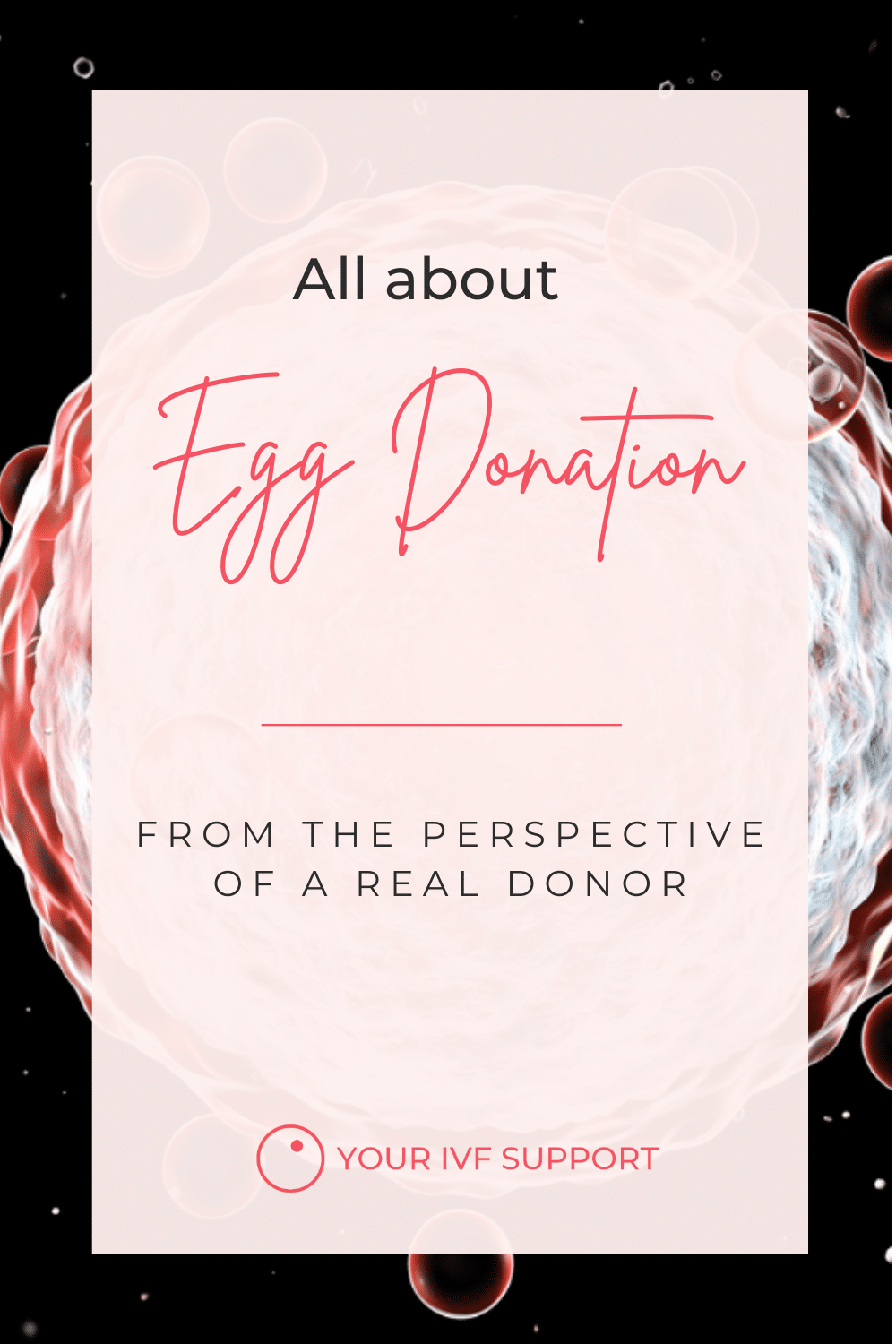
Step 4: Medical preparation
Once a suitable donor has been found, the preparation for donation begins for her. This involves receiving a medical plan with hormone treatments aimed at stimulating the production and maturation of several eggs. The cycle is also adjusted to that of the recipient. This treatment usually takes about two to three weeks. Here, the donor has to inject herself with various hormonal medications two to three times a day. As with the hormonal preparation of the recipient, there may be side effects. This process is constantly monitored with ultrasound scans and visits to the clinic.
Step 5: Egg collection
Egg retrieval is the central step in the donor process. It is done in an outpatient procedure under local anaesthetic or light sedation. A thin catheter is inserted through the vagina into the ovaries to retrieve the mature eggs from the follicles. This procedure usually only takes about 20 to 30 minutes. This process can be uncomfortable despite the light sedation, depending on the case and the donor's body type, it may be easier or more difficult to retrieve the mature eggs.
Step 6: Recovery and aftercare
After the egg retrieval, the donor will need a short recovery period. Shortly after the procedure, the donor can go home, but should avoid physical exertion for a few days. Usually the clinic or agency will be available to help the donor afterwards, for any questions or examinations.
